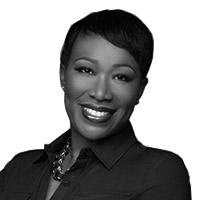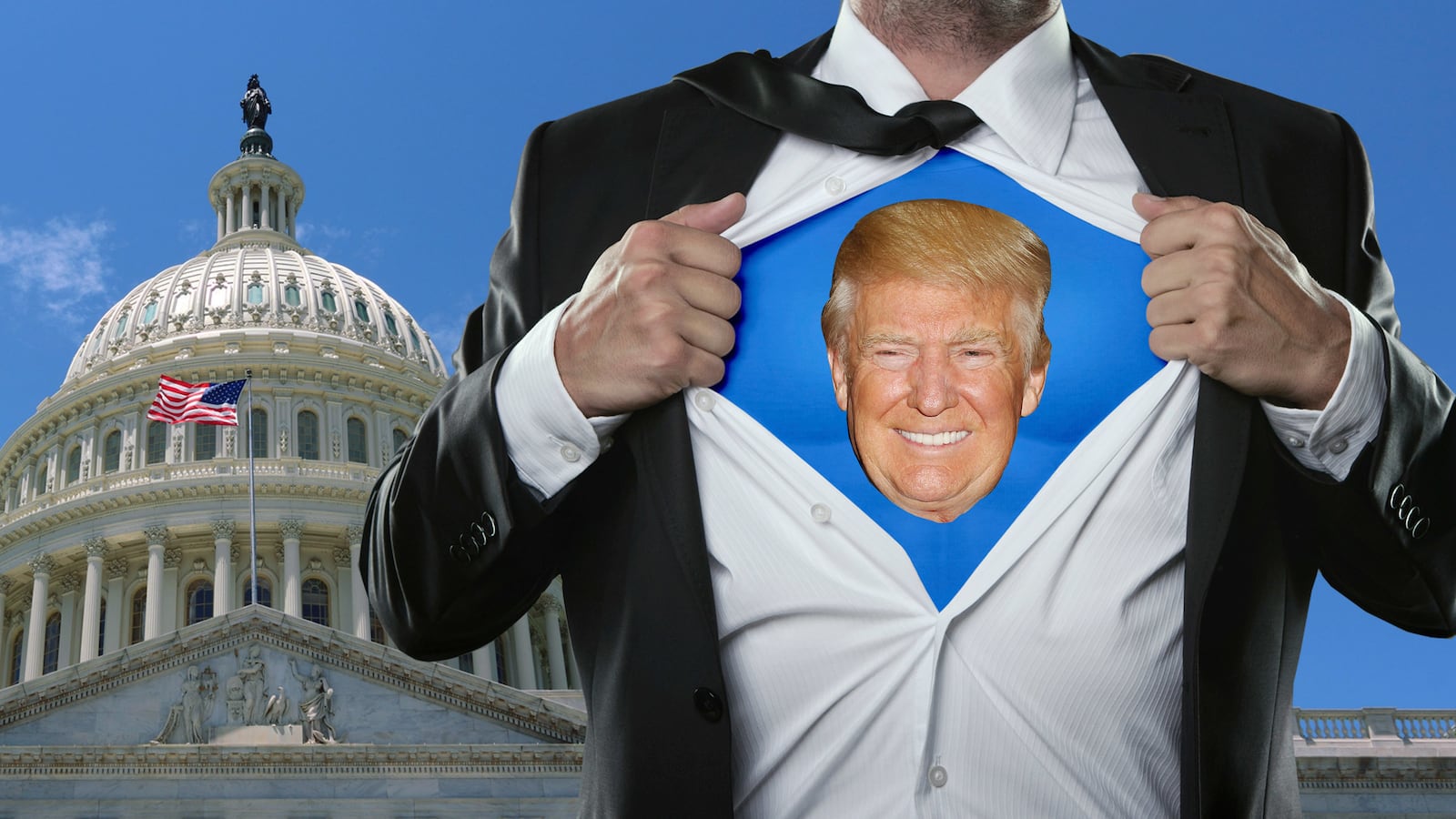In Kill Bill: Vol. 2, David Carradine, as Bill, explains the mythology behind super heroes: that all but Superman put on a costume to inhabit their powerful alter-egos. But not Superman. He does it the other way around. His costume is Clark Kent. “And what are the characteristics of Clark Kent?” Bill asks. “He’s weak, he’s unsure of himself, he’s a coward. Clark Kent is Superman’s critique on the whole human race.”
The presidency is, in many ways, America’s comment on itself; our collective national costume. In the occupant of our sole nationwide elected office, we see who we think we are, or who we want to be.
In Teddy Roosevelt, the country could glimpse it’s potential for valor and derring-do; in John Kennedy its desire for youth and vigor (though the vigor was an image, dutifully protected by the media of Kennedy’s day). Dwight Eisenhower presented a face of America that was heroic and resolute; Ronald Reagan represented a return to confidence and glamour after the weary Carter years.
Barack Obama’s election represented a complete break with the previous iterations of our national self. Not only was the new president black. He was exotically black, and with a foreign-sounding name; an African Muslim-turned-atheist father and a white mother whose taste for adventure included breaking the taboos of racial and cultural miscegenation not once but twice. Obama possessed some of the tropes of traditional American identity—his maternal grandfather fought in World War II and his grandmother was a real-life “Rosie the Riveter.” He was an academic standout and was earnest in telling the allegory of America. He represented a hopeful and audacious country seeking economic revival after the Great Recession, but also racial and political renewal. Obama was and is the face of the “new America”—young, urban and multiracial—that elected him.
Some Americans haven’t gotten over it.
From the start, Republicans, led by Sarah Palin and her vicious rally crowds, questioned everything from Obama’s religion (with their pointed references to his middle name … Hussein) to his very love of country. They were appealing to that segment of Americans who saw in Obama an America slipping away.
Now, millions of them have elevated an authoritarian carnival barker whose nods to white identity politics careen from winking to blaring, to within spitting distance of the White House. Donald Trump’s rise from reality show vulgarian to the Republican Party’s presidential nominee was fueled in large part by his willingness to embrace the birtherism his campaign is now trying to conveniently discard just weeks before the election (and according to Frontline, his desire for vengeance against Obama and everyone else who ever mocked him.)
It’s a testament to the cult of personality Trump has created that his followers and spokespeople, now joined by the head of the Republican National Committee, are attempting a truly Orwellian rewrite on the matter, trying to foist birtherism off on Hillary Clinton, as if the truth and lies are utterly interchangeable in Trump’s almost Soviet-style concept of leadership.
Trump is, in every way, the anti-Obama. If Obama was fundamentally different from prior presidents, Trump seems to violate every tenet of what Americans have long sought as our national image. His casual cruelty, his eagerness to return to Bush-Cheney-era torture as a solution to international terrorism, his ethnic and religious fear-mongering and his tawdry exhibitions of glee when violence flares at his rallies are unlike anything we’ve seen in a major presidential candidate since George Wallace. His lack of self-control and reflex to lash out at perceived personal slights are a sobering preview of what he would be like in control of our national security apparatus. The only conceivable parallel to what he represents, this side of Italy’s ex-prime minister Silvio Berlusconi, are the right wing ultranationalist parties currently rotting their way through Europe.
Indeed, it’s hard for many, both inside and outside the United States to believe that substantial numbers of Americans would want to cast the nation’s image in that of a demagogue and braggart who reeks of such neediness and insecurity that he falls into the arms of Vladimir Putin at the faintest praise. That pluralities of Americans could tell pollsters that Trump is A) racially intolerant, B) in possession of an unpresidential temperament, and C) their preferred candidate, seems almost insane to outsiders looking in at a country that twice elected Obama.
And yet, here we are. And at a certain point, we have to put aside our reflex to venerate the sainted voter and confront the fact that Trump, and all he represents, is what a not-insignificant number of our fellow citizens—mostly white and male and blue collar (though many are affluent and surely eager for a return to the trickle-down economics Trump is promising)—affirmatively want.
Whether they agree with every aspect of Trumpism or not, Trump’s supporters either don’t care or can live with the fact that he cheated people with a fake university, stiffed undocumented Polish workers to build Trump Tower and that his foundation appears to be a vehicle for him to spend donors’ money on his own needs and desires, including potential bribes of public officials, garish self-portraits and payments to settle his own debts. They either don’t care or can live with the prospect that his international business entanglements could conflict with our national interests. It doesn’t matter to them how ignorant or outrageous, inarticulate or just plain crazy he sounds; or that little that he says is either realistic or even true. No matter what they hear from him or from alarmed fellow Americans, they want this country to be represented and led by such a person. (How many times have you heard from a Trumpist that so long as he isn’t Hillary Clinton, they don’t care what Trump says, is or does?)
Donald Trump’s durability as a candidate has alarmed many. But it is real and reflects a basic desire, on the part of a significant number of Americans, to restore a particular meaning to the word “president.” In The End of White Christian America, demographer Robert P. Jones touches on that desire for restoration of what many view as a better time, before the racial and gender upheavals of the 1960s, when people like them, even if they were down on their luck financially, felt they were the nation’s cultural center.
Trump is, to those who support him, broadly recognizable as an American ideal. He is rich and white and male, with a beautiful wife who does what he says (plus a couple exes who keep nice and quiet); adult children who revere him and a platform to tell the snooty, politically correct, celebrity-filled, secular world to go to hell; and to put certain people—immigrants and women and even “not nice journalists”—in their place. It’s no coincidence that a New York Times analysis during the primaries found Trump support strongest in “places where white identity mixes with long-simmering economic dysfunctions.”
A Trump presidency would place the people his followers fear—Muslims and Black Lives Matter activists and Mexican migrants under brutal surveillance by the state, and in the case of immigrants, at risk of removal. Meanwhile, a Trump administration would hand more power to those his supporters revere: namely the super-rich and those who make money dragging oil and gas and coal out of the earth; restoring a Reagan-era Dallas and Dynasty costume to Trumpists’ collective identity.
And while that idea is frightening to many, who glimpse the “alt-right” hipster Nazis and other racial extremists waiting in the wings to join in the “revival,” perhaps with the kind of spasmodic violence against immigrants and others that we’ve seen in post-Brexit Britain—to a group of Americans who feel like weak, disempowered Clark Kents, a President Trump would make them feel like Superman.






